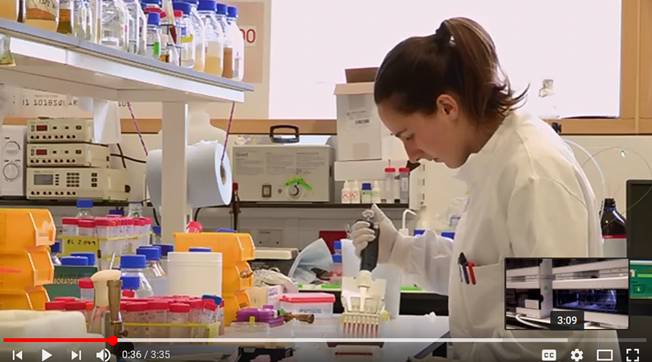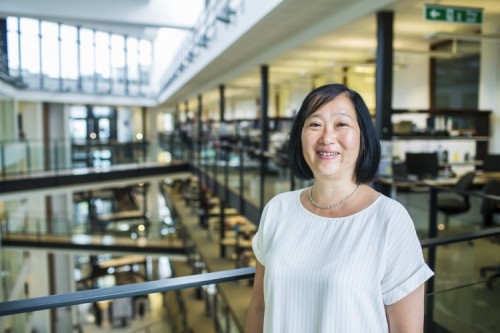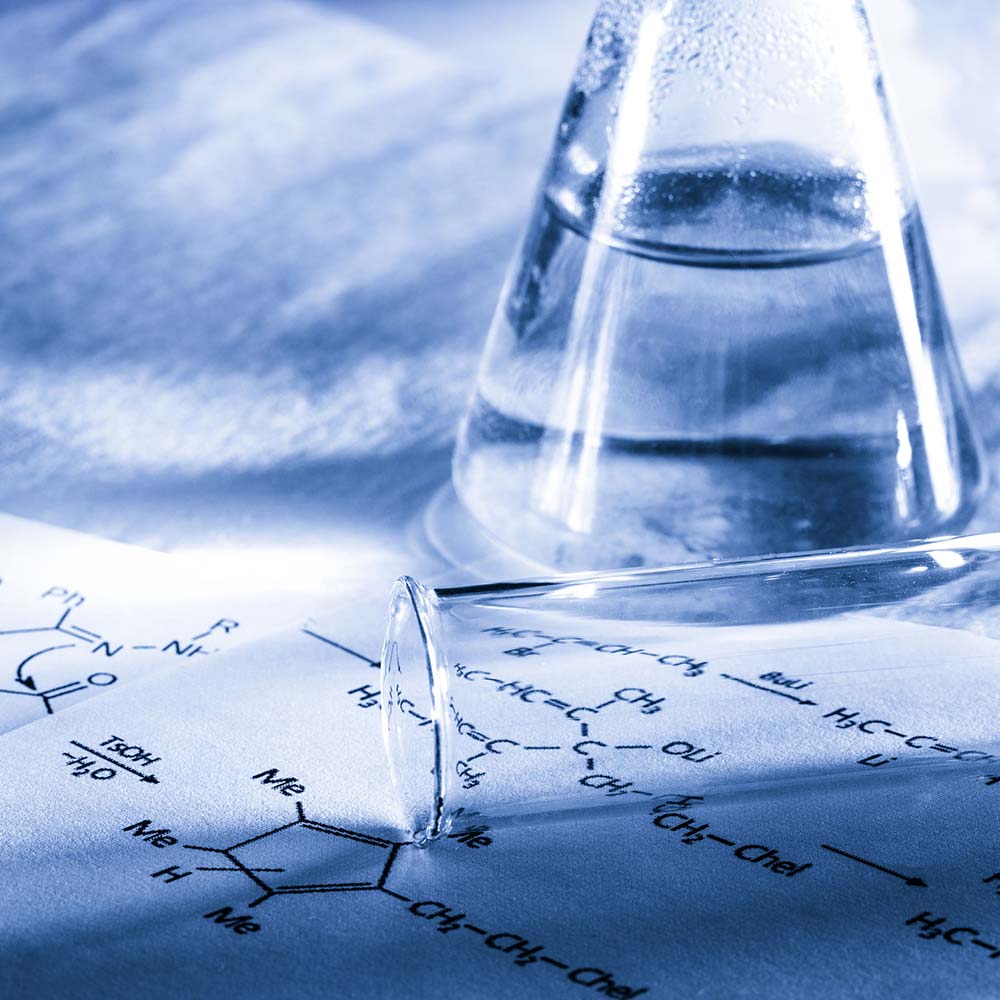News and Events in Brief

LATEST NEWS FROM SYNBIOCHEM
All the SYNBIOCHEM latest news and posts can be found here.

Future Biomanufacturing Research Hub
Future Biomanufacturing Research Hub: Funded by UKRI (£10M over 7 years) this award will provide a collaborative partnership between the Hub based at the University of Manchester’s Institute of Biotechnology and spoke institutions: Imperial College and University College London, Nottingham University, IBIOIC, CPI and the UK Catalysis hub.
The Future BRH will partner with industry to develop new biotechnologies that speed up bio-based manufacturing in key sectors including: Pharmaceuticals; Chemicals; Engineering Materials and Biofuels.
Find out more from the Future BRH website.

SynBioBeta Article
How Manchester’s SYNBIOCHEM is harnessing the power of synthetic biology to scale up the production of chemicals and materials.
Learn more at SynBioBeta’s website

University of Manchester Chemistry videos on YouTube
Discover our research in our new University of Manchester Chemistry videos on YouTube! Demystifying the science behind our research papers, these videos provide a real world view of how important these discoveries are for day to day life.
These include: Finding new routes to replacement molecules for oil using yeast; developing new routes to cheaper, better drugs by pairing man-made synthesis with natural enzymes; and harnessing the power of enzymes to make useful molecules for pharmaceuticals, polymers and plastics using alcohol.
Find out more here

How robots could solve the antibiotics production crisis
The World Health Organisation, has highlighted a lack of new antibiotics in development which is leading to a crisis in antibiotic production and our ability to tackle infections. However, cutting-edge technology gives us a chink of hope in what could otherwise be seen as an intractable problem says Eriko Takano, Professor of Synthetic Biology at The University of Manchester. SYNBIOCHEM is combining the strengths of biology with the power of engineering to find new ways to deal with this problem.
Find out more here

Breakthrough in pharmaceuticals production with new enzyme discovery
Scientists have discovered a new enzyme that will make a drug used to treat Parkinson’s disease cheaper and quicker to produce. Researchers at the Universities of Manchester and York found the enzyme in Aspergillus oryzae, a kind of fungus used for making soy sauce. The discovery, ‘A reductive aminase from Aspergillus oryzae’ was published in Nature Chemistry.

NEW PUBLICATIONS
The full list and more detail can be found here
GeneORator: an effective strategy for navigating protein sequence space more efficiently through Boolean OR-type DNA libraries. Currin A, Kwok J, Sadler JC, Bell E, Swainston N, Ababi M, Day P, Turner NJ, Kell DB. (2019).ACS Synth Biol. 8: 1371-78.
SelProm: a queryable and predictive expression vector selection tool for Escherichia coli. Jervis A, Carbonell P, Taylor S, Sung R, Dunstan M, Breitling, Takano E, Scrutton N. (2019) ACS SynBio. 8: 1478-83.
Machine Learning of Designed Translational Control Allows Predictive Pathway Optimization in Escherichia coli. Jervis AJ, Carbonell P, Vinaixa M, Dunstan MS, Hollywood KA, Robinson CJ, Rattray NJW, Yan C, Swainston N, Currin A, Sung R, Toogood H, Taylor S, Faulon JL, Breitling R, Takano E, Scrutton NS. (2019). ACS Synth Biol. 8: 127-36.
An automated pipeline for the screening of diverse monoterpene synthase libraries. Leferink, NGH, Dunstan MS, Hollywood KA, Swainston N, Currin A, Jervis AJ, Takano E, Scrutton NS. (2019). Sci Rep. 9: 11936.
Metabolic perceptrons for neural computing in biological systems. Pandi A, Koch M, Voyvodic PL, Soudier P, Bonnet J, Kushwaha M, Faulon JL. (2019). Nat Commun. 10:3880
Optimizing Cell-Free Biosensors to Monitor Enzymatic Production. Pandi A, Grigoras I, Borkowski O, Faulon JL. (2019). ACS Synth Biol. 8: 1952-57.
The Values of Synthetic Biology: Researcher Views of Their Field and Participation in Public Engagement. Rose KM, Howell EL, Scheufele DA, Brossard D, Xenos MA, Shapira P, Youtie J, Kwon S. BioScience, 68, 10, 782–791. https://academic.oup.com/bioscience/article-pdf/68/10/782/26119341/biy077.pdf

NEW FUNDED COLLABORATIONS
International Research Alliance for Antiboiotic Discovery and Development Network:
SYNBIOCHEM Co-director Eriko Takano is a founding participant in this new network which is one of eight networks awarded funding within the JPIAMR 2018 call for transnational networks “Building the Foundation of the JPIAMR Virtual Research Institute”. Each funded network will receive €50,000 to establish expertise clusters to identify research community needs and develop ideas to form the foundation for the JPIAMR Virtual Research Institute (JPIAMR-VRI). The IRAADD network includes internationally renowned groups with excellence in AMR research focussing on early stages of antibiotic discovery and development. This expert team will include natural products researchers, medical microbiologists, bioinformaticians, medicinal chemists and target-based drug designers, as well advisory partners from global alliances focussing on antibiotic development such as DNDi/GARDP and IMI-ENABLE. The network partners will set up a cooperative platform to allow the sharing of scientific research data, translational knowledge and expert advice for the strategic development of new and advanced projects with the aim to take collaborative scientific research in the early stages of antibiotics discovery and development to a new level. International Research Alliance for Antiboiotic Discovery and Development Network
Using Synthetic Biology, Metagenomics, and Bioprocessing to Provide Alternative Routes to High Value Chemicals – a UK / Brazil collaboration:
Lignin valorization in cellulosic ethanol plants: biocatalytic conversion via ferulic acid to high value chemicals. Summary: Lignin can be obtained as a by-product of cellulosic ethanol production, and is a potential source of renewable chemicals. Efficient valorisation of lignin is a major unsolved problem in the development of sustainable biorefineries. This 5 year project builds upon an existing BBSRC/FAPESP FAPPA partnership award, and brings together expertise in cellulosic ethanol production and in biocatalyst discovery (CTBE) with expertise in biocatalytic lignin valorisation (Warwick) and biocatalysis for high value chemicals production (Manchester,UCL).
Synthetic Biology for High Performance Materials:
In partnership with the Defence Science and Technology Laboratory (DSTL), University of Manchester (UoM) and the Synthetic Biology (SynBio) Research Centre SYNBIOCHEM, have launched a series of SynBio initiatives around the development of high performance materials with potential civilian and military applications. The research unites expertise in SynBio, additive manufacture, polymer science and allied disciplines and is focused on aramid fibres, multi-functional nanofibres, bioprocessing of agricultural waste and enzyme engineering for new materials. This work is complemented by additional projects funded through EPSRC/Innovate UK.
Development of Thoroughly Optimised Production Chassis for Advanced Pharmaceutical Ingredients:
A new H2020 funded project TOPCAPI, involving 8 academic and industry partners from 4 different countries (led by Prof. Takano) will exploit the natural fabrication power of actinomycetes as microbial cell factories to produce high-value pharmaceutical ingredients.